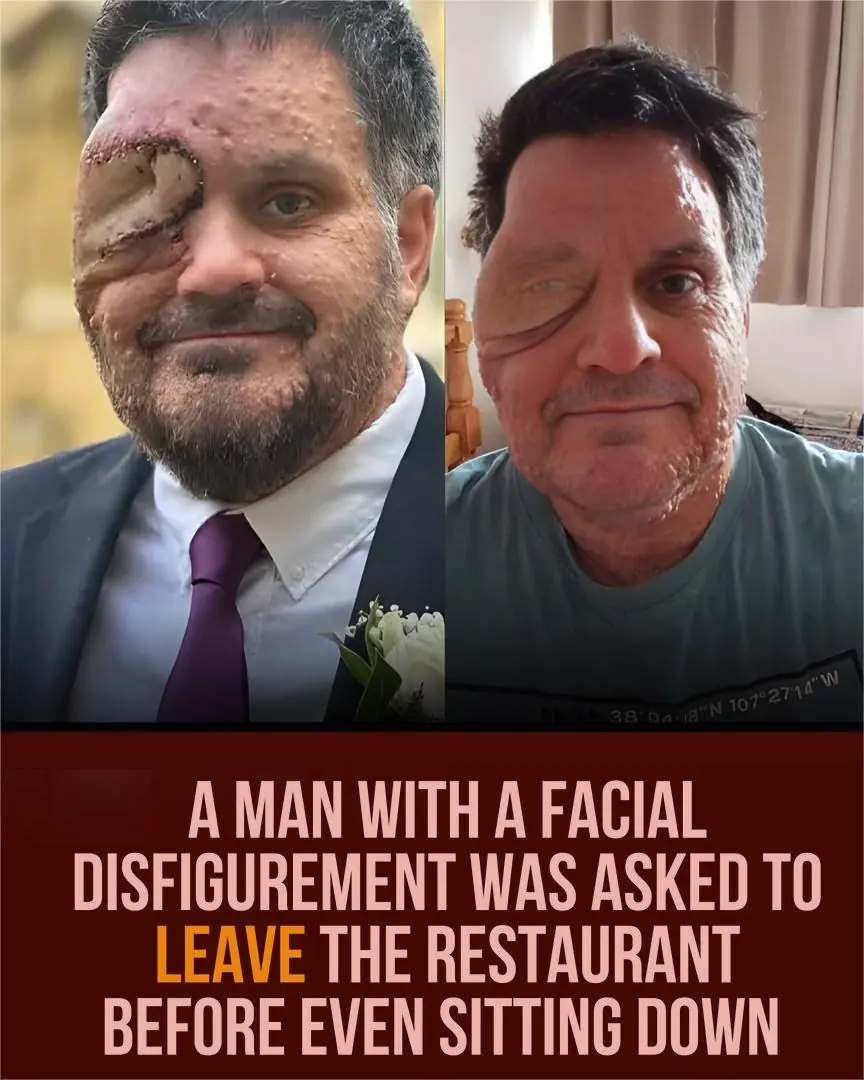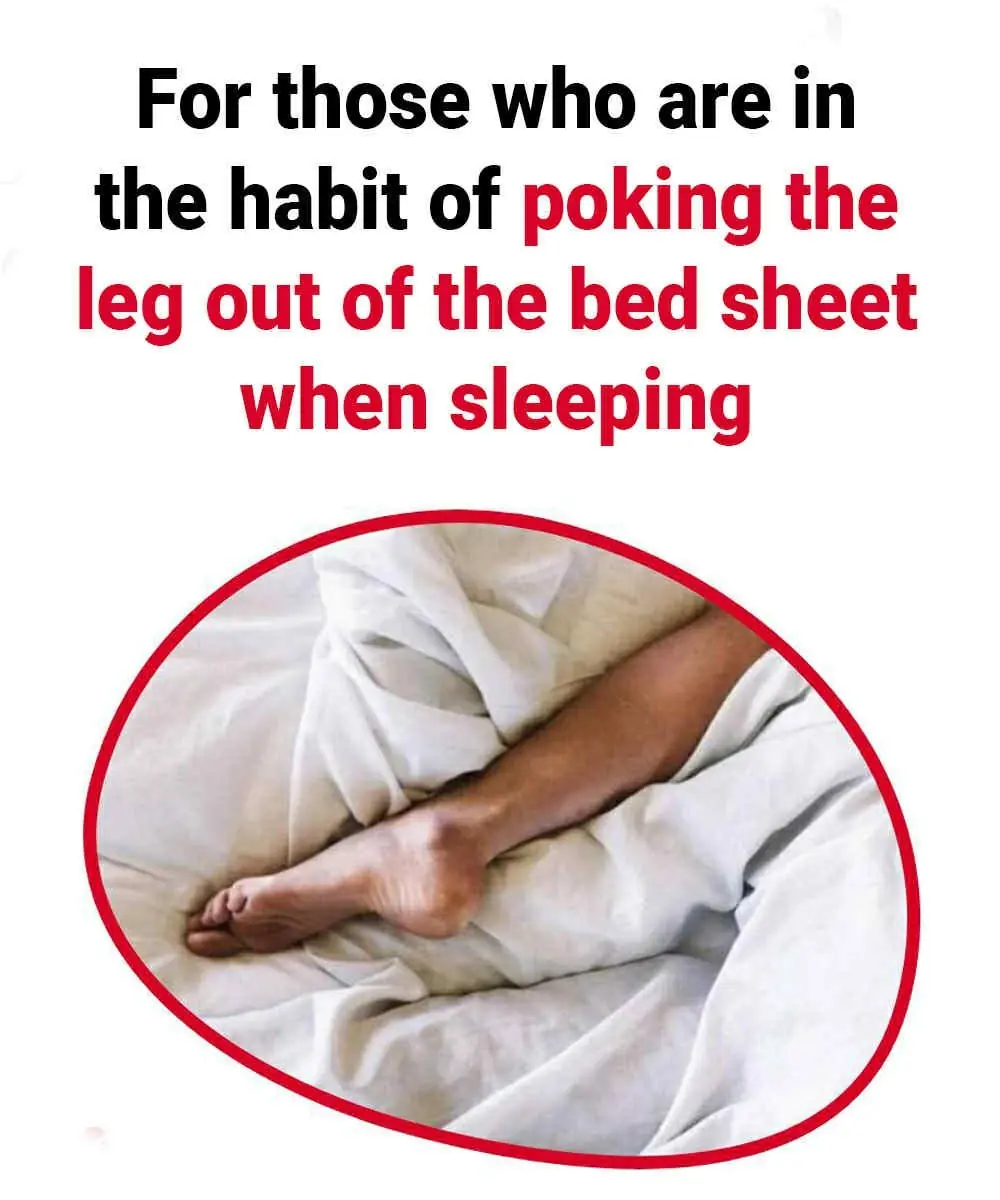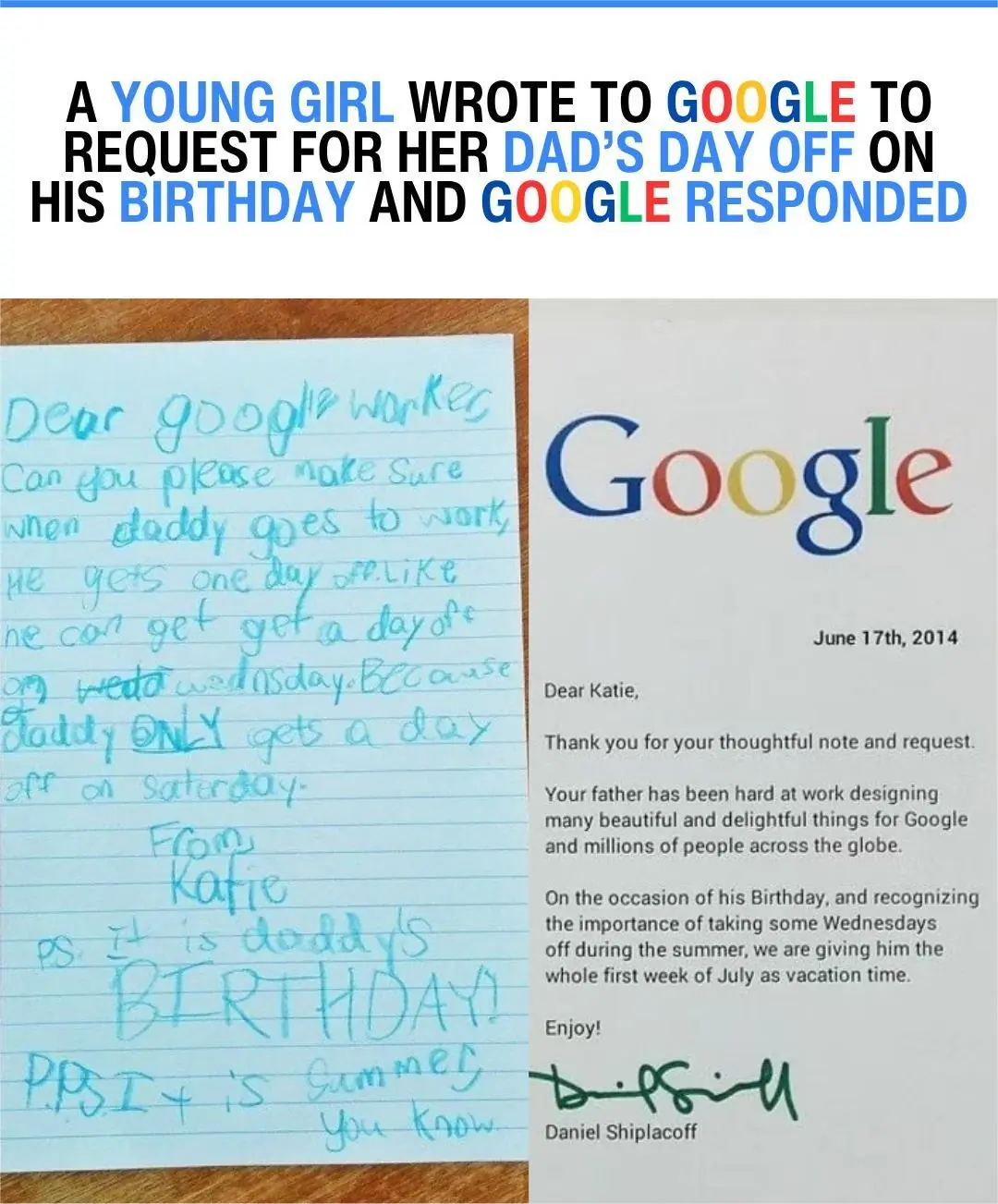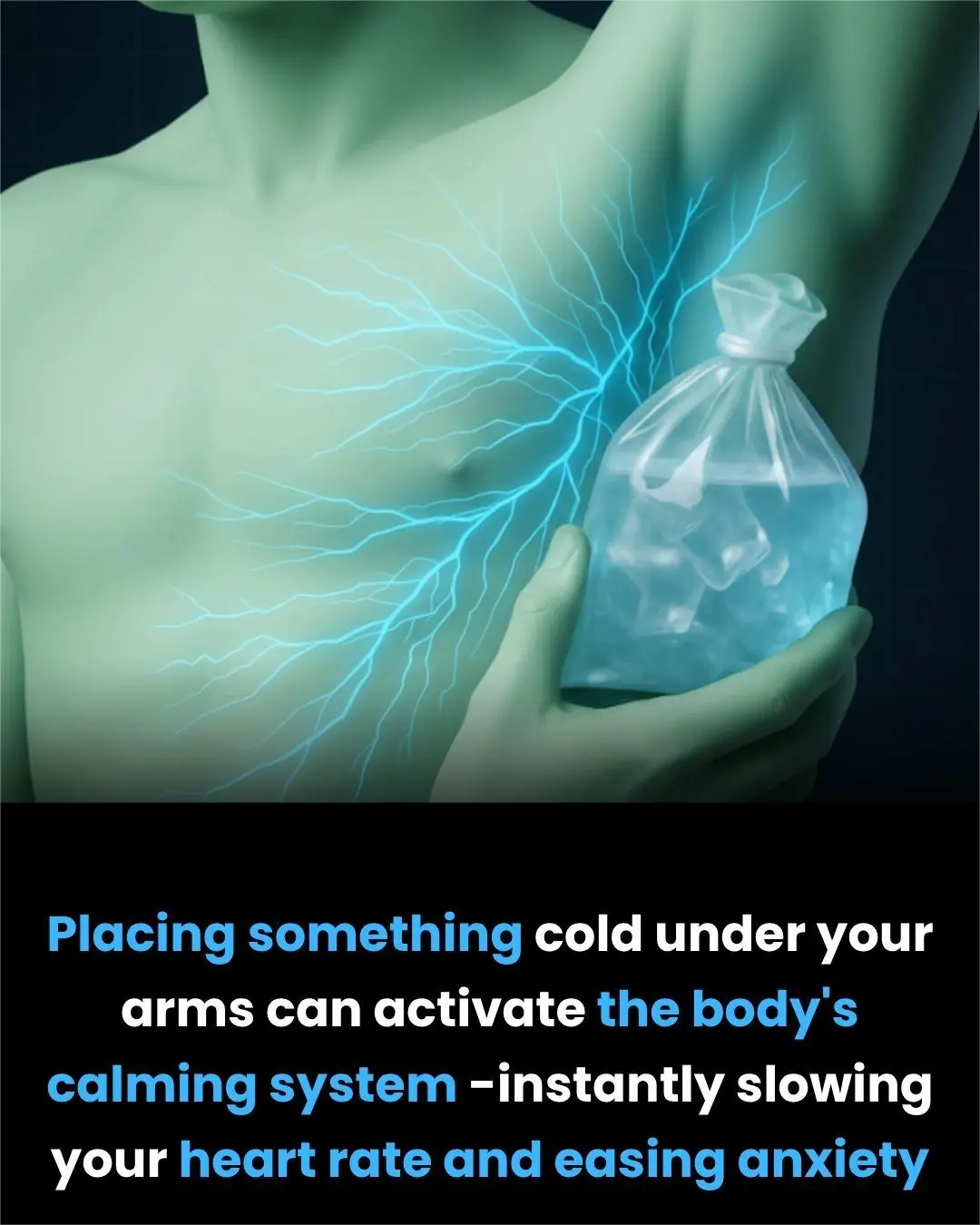
The Science Behind Why Putting Something Cold Under Your Arms Can Calm You Down
In recent months, a simple wellness hack has gone viral: placing something cold—like an ice pack or a chilled bottle—under your arms to reduce anxiety and slow your heart rate. It sounds almost too simple to be true, but emerging science shows there may be real physiological reasons behind it.
How the Body Reacts to Cold Stimulation
When a cold object is applied to the body—especially near areas rich in major blood vessels, such as the armpits, neck, or face—it triggers what’s known as the diving reflex or cold-induced vagal response.
This reflex activates the parasympathetic nervous system, often referred to as the body’s “calming system.” As a result, heart rate slows, blood pressure stabilizes, and the body moves from a state of alertness to relaxation.
Essentially, the sudden cooling effect signals the brain to conserve energy, mimicking the way the body reacts when submerged in cold water. This same mechanism is why splashing cold water on your face or holding an ice cube can sometimes help ease panic or intense stress.
The Role of the Vagus Nerve
The key player in this process is the vagus nerve, one of the most important nerves in the body’s autonomic system. It connects the brain to many internal organs, including the heart and lungs, and plays a vital role in regulating mood and anxiety.
Cold exposure—especially around the chest, neck, or underarms—can stimulate this nerve. In turn, it helps lower the heart rate and signals the brain to enter a calmer, more balanced state.
Many people who practice vagus nerve stimulation techniques report feeling instant relief from racing thoughts, tension, and even mild panic symptoms.
What Science Says (and What It Doesn’t)
Studies have shown that cold therapy and vagal stimulation can help reduce symptoms of stress and anxiety in some people. However, scientists caution that this is not a cure-all. The effects are temporary and can vary from person to person.
Experts recommend using cold stimulation as a complementary method—alongside deep breathing, mindfulness, or therapy—rather than as a medical treatment.
Still, it’s a surprisingly simple way to “reset” the body when emotions run high.
A Quick, Practical Calming Trick
If you’re feeling anxious, here’s how to safely try it:
-
Wrap a few ice cubes or a cold pack in a soft towel.
-
Gently place it under your arms or against your neck for about 30 seconds to a minute.
-
Breathe deeply and focus on the cool sensation.
You should feel your body begin to relax and your heart rate start to slow.
The Takeaway
This method works because it taps into the body’s natural biology, not because of any mystical trick. The human nervous system is wired to respond to temperature and touch.
So, while science is still studying exactly how effective this “ice under the arms” method is, there’s no denying that it offers a quick, harmless way to bring the body—and the mind—back to balance.
In a world where stress and anxiety often feel unavoidable, sometimes the simplest tools are the most powerful. A few seconds of cold might just help you find a few moments of calm.
News in the same category


The Windows 10 Wallpaper That Was Shockingly Real

Olympic Medal Turned Into a Miracle: The Selfless Act of Maria Andrejczyk

A Little Boy’s Silent Prayer That Touched the World

Bullied 7-Year-Old Boy Finds a Kindred Spirit in Cat With the Same Rare Conditions

Single Dad in Thailand Dresses as Mom to Support His Daughter

Man With Facial Disfigurement Asked to Leave Restaurant Before Sitting Down

She Had 43 Cosmetic Procedures To Become A Barbie Doll – Critics Say She Looks Like A ‘Zombie’

She believed it was just an ordinary photo — but zooming in revealed a shocking truth that turned her world upside down

Newly married couple tragically discovered dead in their car just weeks before celebrating their first anniversary

Sleeping Trick? Why Sticking One Foot Out Actually Works

Two best friends died hand in hand in an accident right before prom night

Divorce warning signs you might be ignoring

🌱 UBC Scientists Develop the World’s First Mushroom-Powered Waterless Toilet

Elon Musk: Building a Thriving Mars Colony Means 100,000 People, 1 Million Tons of Cargo and a Mission Beyond Just Arrival

October 21: Rare Green Comet Meets Orionid Meteor Shower in a Double Cosmic Spectacle

Indian Engineers Win Ig Nobel Prize for UV Shoe Rack That Kills Bacteria and Eliminates Odor

Nobel Prize 2025: Breakthrough Discovery Reveals How the Immune System Knows When to Stop Attacking Itself

GE’s Haliade-X: The World’s Most Powerful Wind Turbine Revolutionizing Clean Energy

Google Grants a Special Birthday Wish from a Little Girl
News Post

WHAT HAPPENS WHEN WE TONGUE KISS…See more

Nature’s Secret: 4 Healing Leaves That Support Metabolism, Immunity & Circulation Naturally

Don’t Drink Coconut Water Before You Know These 11 Secrets!

Pumpkin Seed Milk — The Natural Parasite Cleanser

Fast Rice Water Trick for a Brighter Smile

Morning Drink to Revive Your Kidneys Fast

The Onion Recipe That Could Transform Your Blood Sugar, Support Cleaner Arteries, and Protect Your Heart!

Top 4 Fruits That Help Your Kidneys Flush Out Toxins While You Sleep

Ginger, Clove, and Honey: The Natural Trio Your Body Will Thank You For

Heal 15 Years of Joint Pain Naturally with Turmeric and Honey Tea

This Juice Revived My Grandma’s Energy — Say Goodbye to Fatigue and Body Pain with This Natural Recipe

The Benefits of Eating 2 Boiled Eggs Every Morning: Transform Your Health!

If Your Kidneys Are in Danger, Your Body Will Send You These 8 Signals — Don’t Ignore Them

The Surprising Effects of Avocado on Your Heart and Brain

Ways to Get Over a Man Who Didn’t Value You

I’m 66 but Look 36 — My Secret? Aloe Vera & Ginger for Firm, Smooth Skin

How to Make Okra Water to Treat 17 Health Problems Naturally

Banana and Egg Mask to Look Younger Even in Your 80s

Scent Leaf Secrets Unveiled: 10 Surprising Health Benefits of This Miracle Herb

